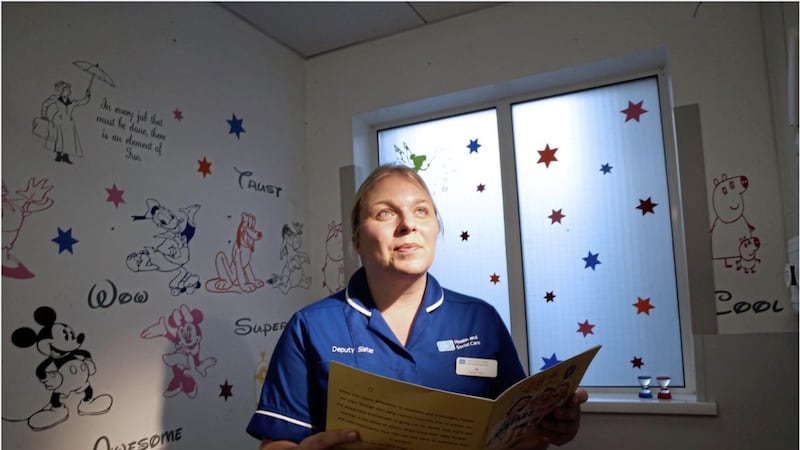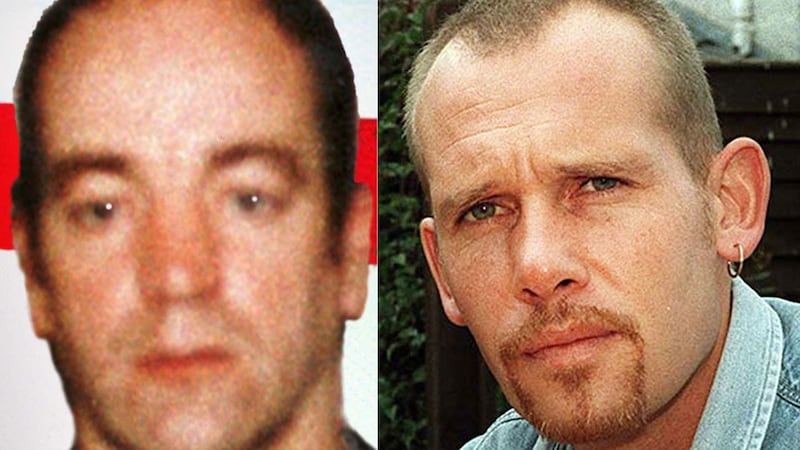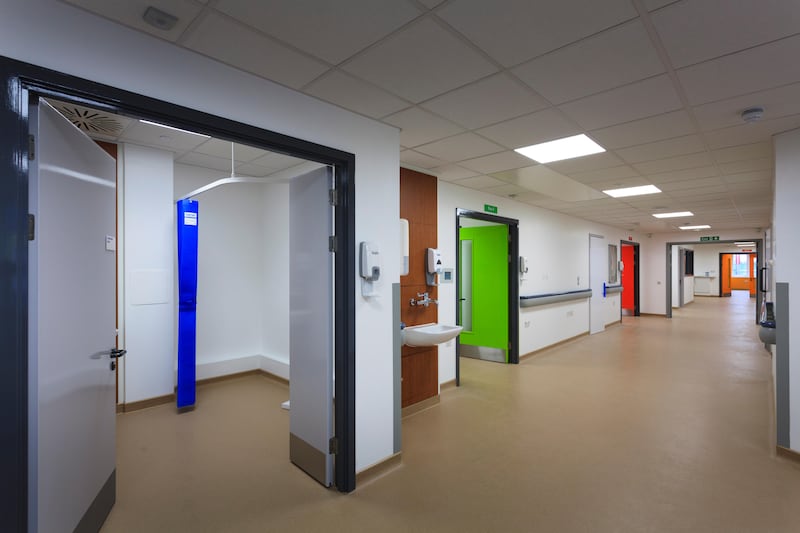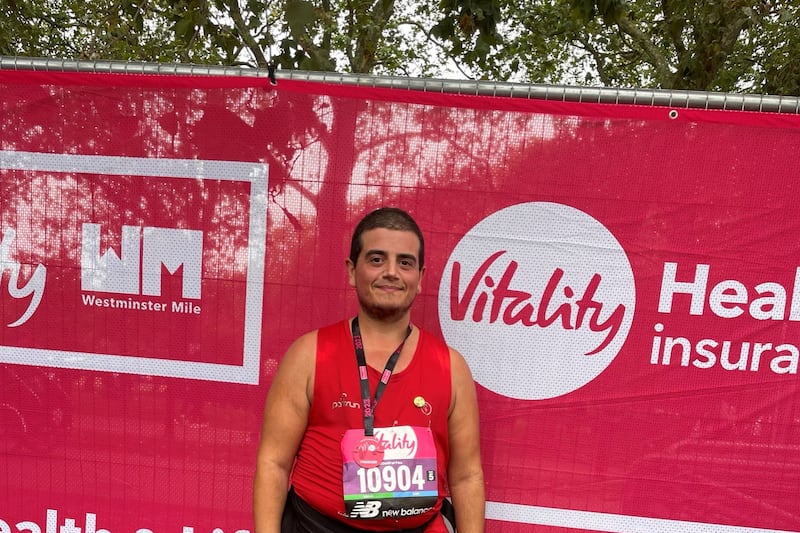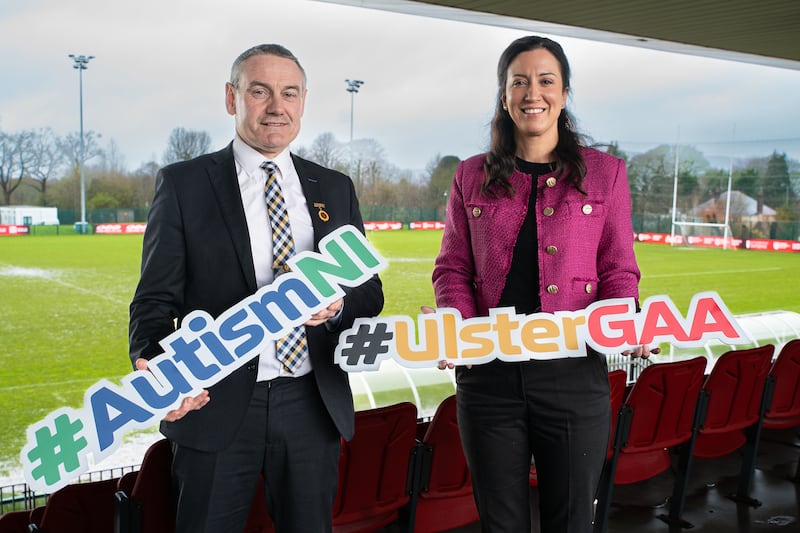ON a winter's night in one of Northern Ireland's busiest A&E departments, a teenage boy came to its doors but could not make eye contact with staff.
Senior nurse Joanne McConnell, who has two young autistic children of her own, was on duty that evening in the Ulster Hospital in Dundonald and immediately recognised the signs.
"It was a busy night with over 100 patients in the department and a mother came with her 16-year-old son who had no physical disability," she explained.
"He couldn't cope but she said he wanted to come to hospital. She was really worried as he had become completely disengaged with school, with his friends - she wanted to know it was his autism or if it was something physical.
"I had nowhere to put him. Every space was taken. So I made a risk assessment and put him into one of our blood rooms with his mum. I knew there was needles but he was safe, I was with him and I managed to engage with him. He didn't have to be seen immediately - he just needed somewhere to go....when he was discharged I went back and found out it was his autism."
The 42-year-old nurse from Bangor, Co Down, said the event "bothered her for weeks" as she realised the lack of awareness and provision around dealing with autistic patients in an A&E setting.
Emergency lights, noisy machines, trolley waits and the general chaos of a unit that sees 100,000 patients a year can lead to "sensory overload" - even on a quiet day.
A fifth of those patients are children.
The deputy sister - who first qualified 20 years ago and is passionate about emergency care - located a room she used for storage of A&E equipment - including drip stands - and set about transforming it to a "quiet space" for patients with autistic spectrum disorder (ASD).
What was also vital was getting her hospital colleagues to back the idea at a time of rocketing patient delays and burnout across the sector.
"It wasn't a room to be led by medics or nurses - it was 'parent-led' room. I didn't put in chairs or trolleys as people could fall off them. So we've put in jigsaw shaped foam mats and bean bags," Ms McConnell, who is known as 'Sister Jo' added.
"Because we have no money in the NHS we got them through hospital supplies. One of the housekeepers is married to man who runs a firm that printed stickers for cars. He was able to print off a lot of Disney characters for us."
While the specialist A&E room - the only one of its kind in the north and one of the few in the entire NHS - appears as if it is decorated for children, it has been used for adults since it was introduced six months ago.
"The room has been used by 16-year-olds and people in their thirties who have autism or anyone with a learning disability who needs a quiet space. It's for everybody who needs it," she said.
Ms McConnell distributed a questionnaire among the team in the department and got feedback from across the workforce, from doctors and pharmacists to domestics and nurses.
"What I was really surprised about was the really high percentage who were dealing with autism in their own life on a daily basis," she said.
"Staff agreed ASD patients needed a quiet space, are seen in a timely fashion and also said our staff needed more education."
An A&E 'hospital passport' was developed for autistic patients booking into the hospital. The form asks questions including what makes them 'happy, sad or distressed'.
The patient or parent fills in the form prior to assessment in triage, making it easier to communicate with the nurse.
"One of the passports I had recently told me 'my son doesn't talk'. Nurses would be very much into talking to the child - well, obviously that wasn't going to work in that case," Ms McConnell said.
"We try to get ASD patients seen in a more timely fashion which has worked well, but we still obviously have delays. I think though that being in the quiet space, it's not so much about the waiting time - it's more about the fact they are not in a noisy, busy environment."
Sensory toys, DVD players and iPads are in the quiet room to 'distract' patients.
Children who have had headaches, tummy aches and suspected meningitis are among younger patients who have used the facility.
"One of the first compliments we got was about a child who came in with croup. A doctor needed to treat him in the resuscitation room - but once we realised he had ASD we were able to minimise the lights and reduce the number of people with him and explain about the medication. It's these small things that make a difference.
"We've have had some non-verbal patients who can point to a moving model on the wall with body parts and tell us what's wrong with them. It's a visual aid we got from a Welsh hospital.
"It's just reducing the sensory overload of people with ASD in the emergency department."
Such is the success of the scheme, it is to be replicated in other hospitals in the South Eastern trust, including Lagan Valley and Downpatrick.
The nurse's pioneering work was also recognised by the Royal College of Nursing in Northern Ireland - with her scooping a major learning disability award at its annual Nurse of the Year Awards last month.
"The award was very humbling but none of this would have worked without the department team coming together. Even one of our porters who is a schoolboy at Regent House donated books to our room about autism. It's working so well," Ms McConnell added.
Despite the ongoing pressures of A&E work - trolley waits are continuing into the summer months - the Bangor woman says she 'loves her job'
"Obviously there are cases that upset you and nobody wants people to wait the hours they're waiting...But ever since my three-year brother died from leukaemia I knew this was all I ever wanted to do. It's amazing."
